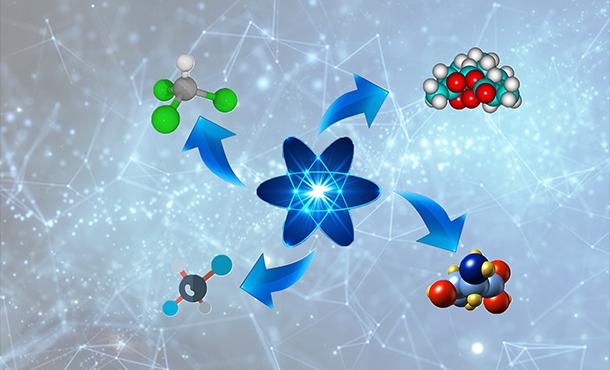
Credit: Junde Li, Penn State
Quantum machine learning, an emerging field that combines machine learning and quantum physics, is the focus of research to discover possible treatments for COVID-19, according to Penn State researchers led by Swaroop Ghosh, the Joseph R. and Janice M. Monkowski Career Development Assistant Professor of Electrical Engineering and Computer Science and Engineering. The researchers believe that this method could be faster and more economical than the current methods used for drug discovery.
Seed funding from the Penn State Huck Institutes of the Life Sciences, as part of their rapid-response seed funding for research across the University to address COVID-19, is supporting this work.
“Discovering any new drug that can cure a disease is like finding a needle in a haystack,” Ghosh said.
According to Ghosh, using the existing drug-discovery pipeline can take five to ten years from initial idea to market approval, and cost billions of dollars.
“High-performance computing such as supercomputers and artificial intelligence can help accelerate this process by screening billions of chemical compounds quickly to find relevant drug candidates,” he said. “This approach works when enough chemical compounds are available in the pipeline, but unfortunately this is not true for COVID-19. This project will explore quantum machine learning to unlock new capabilities in drug discovery by generating complex compounds quickly.”
Ghosh and electrical engineering doctoral students Mahabubul Alam and Abdullah Ash Saki and computer science and engineering doctoral students Junde Li and Ling Qiu previously have worked on developing a toolset for solving particular types of problems known as combinatorial optimization problems, using quantum computing. Drug discovery falls into the same type of problem as those they previously worked on, which made it possible for the researchers to pivot to searching for a COVID-19 treatment while using the same toolset that they had already developed.
“Artificial intelligence for drug discovery is a very new area,” Ghosh said. “The biggest challenge is finding an unknown solution to the problem by using technologies that are still evolving — that is, quantum computing and quantum machine learning. We are excited about the prospects of quantum computing in addressing a current critical issue and contributing our bit in resolving this grave challenge.”
###
Media Contact
A’ndrea Elyse Messer
[email protected]




